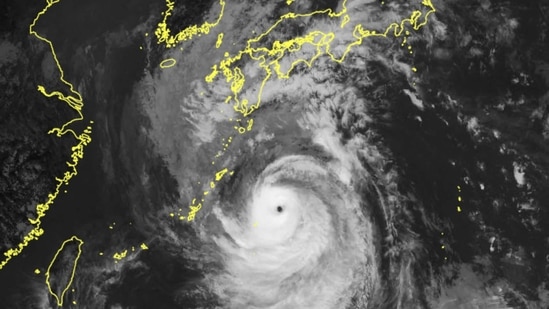Japan braces for 'violent’ Typhoon Nanmadol amid warning for thousands
The typhoon is likely to bring along strong winds, gusting up to 75 meters a second as it hits its way toward southern Kyushu.
The Japan Meteorological Agency (JMA) on Saturday said that a "strong and violent" storm - Typhoon Nanmadol - is set to hit some parts of the country this weekend, local media reported. According to the forecast, the typhoon will curve northeast over Japan's main islands, delivering "unprecedented" weather. The agency, according to local news platform Japan Times, also said that it was ready to issue a “special warning” for parts of Kyushu.

Ahead of this, Japan’s southwestern Kagoshima city has advised around 34,000 people to evacuate, reported Bloomberg, citing the public broadcaster NHK.
Also read: India, Japan unveil plans for first ever air force exercise
The typhoon is likely to bring along strong winds, gusting up to 75 meters a second as it hits its way toward southern Kyushu, about 1,000 km from Tokyo. It is likely to approach Kyushu on Saturday night and Sunday and then change course to the northeast, beating a path along Japan’s main island of Honshu.
According to a Japanese weather agency, the typhoon is likely to cause high waves, storm surges, landslides, flooding, and overflowing rivers. It added that the strong winds in some parts may lead to homes collapsing, reported the Japan Times. The officials have also urged residents to stay in sturdy buildings and stay away from windows.
Also read: Tokyo governor says Japan should lure more foreign tourists with weak yen
Meanwhile, ANA Holdings and Japan Airlines Co Ltd have begun canceling flights to and from Okinawa and Kyushu. Train services in the region are also expected to face severe delays and cancellations from Saturday to Tuesday.
In recent years, Japan has witnessed two severe typhoons that led to massive destruction. In 2018, Japan's Kansai region was hit by Typhoon Jebi, which killed 14 people. In 2019, Typhoon Hagibis had hit Japan's Kanto region near Tokyo and had caused power outages.
(With inputs from Bloomberg)






